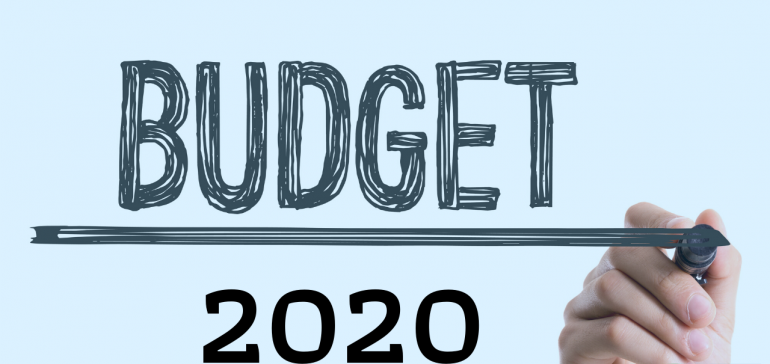The beginning of the New Year is always the best time to give another chance to the have not’s or have a ‘Fresh Start’. This year has been one train wreck, especially when it comes to finances. Everyone’s finances have gone for a toss and many a financial trains might have completely derailed.
The bells of New Year are not far and time to make a list of the 10 most important financial resolutions plus one for good luck before entering 2021 to get our train back on track.
1 – Paying off the debt – Global debt reached a record high of 258 trillion dollars in the first quarter of 2020. Indian household debt stood at nearly Rs 43 trillion just by end of March up from Rs 19 trillion in just 5 years ago. The increase in household salary is 4.3 percent versus increase in debt is 17.7 percent as compared to 2015. This year with slow or no business, job cuts and pay cuts, debts have increased for almost everybody. With the benefit of moratorium, all that individuals have managed, is to postpone the inevitable, with the extra burden of having to shell out extra money as interest. Non-payment of debt not only invites loan collectors to your house but also harms your CIBIL or credit score lowering your chances for access to finances and other financial services as required by you in the future. Make sure to the make payment of debt as your number one priority of the New Year to not only improve your credit score but also reduce your financial burden.
2 – Be informed before taking loan – there is rarely any individual who does not have a debt. I am sure half of you after paying off your debt will go back to the same bank to get another one. Make sure to do your research about the rate of interest and make sure this time around your Annual debt payment do not increase more than 40 percent of your gross income.
3 – Be prepared for financial destruction – 2020 has probably bought the whole world to a standstill whose financial ramifications will be felt for next few years. This year is a lesson ‘Anything can happen anytime’. Be prepared at all times for financial emergencies. No harm in mentioning it AGAIN to have emergency funds of at least three month of mandatory expenses in liquid or absolute cash form. (I know you are tired of reading this but despite that I come across people who have not done it.) Get your finances in order along with emergency funds and inculcate the habit of regular savings and investing.
4 – Insurances -time and again the topic has been delved upon. But just recently, I was talking with a client who got redundant due to Covid and whose only medical insurance was from the company despite advising him to take an independent Medi- claim. Due to Pandemic the medical inflation has reached to 19.5 percent from 18 percent in 2019. Medical treatments are expensive and due to Covid-19 and new guidelines in place the cost of treatments in hospitals have increased. Not only medical I think this year has proven life has no guarantee. Make a list of insurances – Medical, Life, Car and Home and get them in order. This is known as Risk management and the foundation of a good financial plan.
5 – Involvement of family – family plays an important role in financial planning. Initially only the men of the house would handle the finances. Although now things have changed for the better but traditions die hard. In fact forget men now the number of women entering business has increased more than men. Just recently a family friend who had a roaring food business died of sudden heart attack. The lady was extremely successful. But she use to never discuss financials with her husband. The husband was clueless about the money which he had to receive from her clients. A very important part of financial planning is involvement of spouses. Have a file which lists down all your accounts with amount outstanding, in one place along with all the details be it insurances, mutual funds or shares, outstanding debts or debt to be received.
6 – Financial Planning with regards to education to your kids– a VERY important part of your kids overall education and development. I mean, why give other examples I will give my husband example who loves taking my kids to toy shop every alternate Sunday. Thankfully due to constant drilling in their heads since their childhood my kids will first check with me and only then will pick up something or might just pick up a book (which is totally fine). I have always given them a target as to if they want a toy they need to save for it. Let me list down 3 points on Why financial literacy is important at a young age – 1) – Financial illiteracy breeds irresponsible adults, 2)- Easy to pick up bad financial habits, 3) – Better prepared for emergencies. So at a young age, inculcate financial education to raise savvy investors and avoid debt traps.
7 – Sort out your Estate – Estate planning always a last priority. Do not avoid it. Bear in mind settling your affairs after you have gone is a costly affair one which can have adverse impact on family equation. Remember – Estate Plan protects the beneficiaries, protects your young children, eliminates family feuds, and can save from shelling our big tax money. Remember – Estate Plan is NOT only for rich family. Sort out your estate, insert nominations and make sure to settle any disputes or dues you have so as to not leave your debt as legacy.
8 – Pyramid Planning – recently I had written an article due to which I got calls and mails from many young investors which was impressive but at the same time when you ask them the usual Financial Planning questions about when they need the money, how long they want the investment for, are their insurances in order that’s when they are clueless. Remember – 1) – Emergency planning – 2) Risk Management – 3) Investment Planning – 4) Tax Planning – 5) Retirement Planning – 6) Estate Planning. Follow this hierarchy to build a strong and methodical planning which has a strong foundation which no pandemic or catastrophe can shake.
9 – Tax Planning –‘Tax’ word gives the jibbers to everyone and people try to postpone it to the last minute. Invest smartly from the beginning and take advantages of the investment options that offers maximum tax advantages. Resolve not to invest in ‘Benami’ assets to save tax as if caught there is heavy penalty. Plan for taxes in advance to avoid last minute investments to save taxes which might not only yield much but also your money will be stuck due to lock in period. Tax planning is equally important.
10 – Develop a set of new skills – Future holds lot of uncertainty. Just like emergency funds if possible develop new set of skills or an alternate way for earning so as not to face financial hardship in future.
11 – Resolve to follow your resolutions – last but no way the least as wisely said by Suze Orman, American financial advisor and Author, “Ever achieved financial fitness with a January resolution that’s abandoned by February.” Make sure to follow all your financial resolution to avoid being in a bad financial place!!










